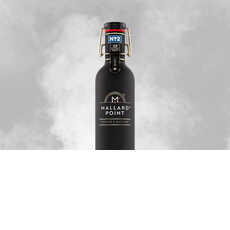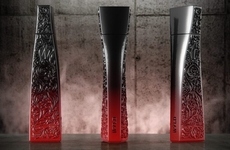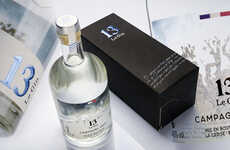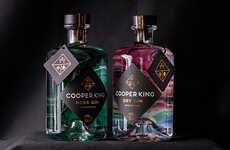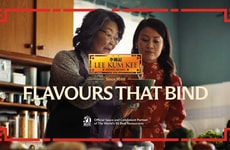
Hyke Gin Very Special is Made Using Wine Grapes
Michael Hemsworth — May 28, 2021 — Marketing
References: foxholespirits & thespiritsbusiness
The Hyke Gin Very Special from UK-based Foxhole Spirits will offer consumers a more sustainable option to try out that makes use of an ingredient that would otherwise be discarded. Crafted using pressed wine grapes, the gin is made with 19 botanicals that add further flavor complexity that is unlike anything out there. The gin is finished with a drop of brandy to give it an unexpected flavor accent.
Foxhole Spirits Founder James Oag-Cooper spoke on the new Hyke Gin Very Special saying, "We took our English wine grape spirit and started to create something completely new with it. We realised that this raw material is so incredible, and has so much texture and flavour. With all of our expertise over the last few years, [we thought] that we could make something that other people will think is even better.”
Foxhole Spirits Founder James Oag-Cooper spoke on the new Hyke Gin Very Special saying, "We took our English wine grape spirit and started to create something completely new with it. We realised that this raw material is so incredible, and has so much texture and flavour. With all of our expertise over the last few years, [we thought] that we could make something that other people will think is even better.”
Trend Themes
1. Sustainable Alcohol Production - Incorporating discarded food materials into alcoholic drinks has the potential to reduce waste and provide consumers with eco-friendly options.
2. Novel Botanical Infusions - Using unconventional botanicals to create unique flavors and aromas in spirits is a trend that appeals to adventurous consumers seeking new taste experiences.
3. Innovative Flavor Pairings - Combining unexpected flavors such as brandy and pressed wine grapes in gin creates a distinctive and memorable drinking experience that stands out in a crowded market.
Industry Implications
1. Alcoholic Beverage - Sustainability initiatives that reduce waste in production and innovative flavor profiles that differentiate products in an increasingly crowded market offer opportunities for disruption in this industry.
2. Waste Management - Partnering with distilleries and breweries to repurpose residues and byproduct offers potential for value-added waste reduction and efficient resource usage.
3. Agriculture and Farming - Collaborating with beverage producers to repurpose food byproducts into value-added ingredients for premium products creates additional revenue streams and promotes sustainable food systems.
3
Score
Popularity
Activity
Freshness



